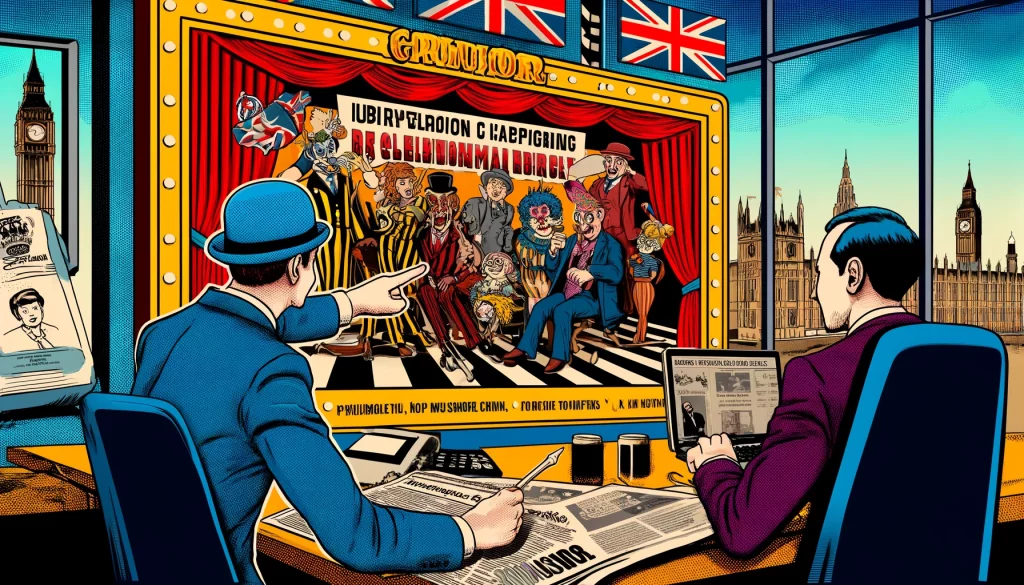
BazBudget
Read more
May 31, 2024 | 4 min read
Author: Andy Wood

I don’t know about you but I view the prospect of several more weeks of election campaigning in the UK with a degree of mixed emotion.
On the one hand, it has all the pantomime of an old time Vaudeville show.
At the same time, however, politicians will be trying to convince voters that they are earnest and mature enough to be trusted with managing the country’s finances.
Even if they appear able to reconcile kicking each other’s shins with balancing the books come polling day, they know that a poor performance once they take the reins of power might well see them ousted next time the ballot papers and little pencils are wheeled out 5 years later.
However, the same kind of accountability is not granted to taxpayers who are unhappy with those in charge of HMRC.
In recent times, it has had what might politely be described as an absolute shocker.
Back in February, the House of Commons’ Public Accounts Committee described the Revenue’s customer service as having hit “at an all-time low”.
Three weeks after that, we witnessed the inelegant spectacle of HMRC outlining plans to close its telephone helpline for six months only to back-track just 24 hours later.
The Revenue’s First Permanent Secretary, Jim Harra, told MPs only last month the diversion of customers from ‘phone support to digital resources was the result of ever-tightening financial pressures which will have forced the reduction of employee numbers by 5,000 in three years.
As Mr Harra explained it, the cutbacks sound severe enough as to almost merit a radical shift in how HMRC prioritises the cash which it is given by ministers.
Yet, once again, the public protestations of parsimony seem to be at odds with the details.
The National Audit Office (NAO) has just completed another review of the Government’s efforts to create what it boasted would be “the world’s most effective border” in the wake of the UK’s withdrawal from the European Union.
One of the consequences of Brexit was that the process of how goods between the Britain and the EU had to change.
It was hoped that those new arrangements would be in place by next year but the NAO has now found that delays and IT problems mean that is not going to happen.
The NAO, though, has uncovered more than just an overrun. It has been able to discern a catalogue of waste and inefficiency.
It includes the £258 million spent by HMRC in the three years to April “building and running eight temporary border facilities to cope with additional demand that did not fully materialise”.
Furthermore, in May last year the Revenue signed a £150 million contract with Deloitte as part of its leading the efforts to deliver an administrative structure, known as the Single Trade Window (STW), intended to make it easier for businesses to trade with the EU.
Already, says the NAO, the programme is running several months behind schedule, obliging HMRC to acknowledge “the complexity and challenges in delivering STW”.
Should the system come on-stream a year later than planned, it could reduce the potential benefits to “traders, government and the wider economy” by a whopping £866 million.
I reckon that it gives a lie to Mr Harra’s repeated pleas of poverty and suggestions that a lack of resources have acted as something of a brake on HMRC’s attempts to demonstrate how capable it really is.
Even the most reasonable readers, in fact, might conclude that it shows the Revenue to be less than handy in spending what cash it has been tasked with looking after.
That might cause people to ask whether Mr Harra and colleagues could do more to close a tax gap which, at the latest estimate, stands at just under £36 billion.
Would more responsible stewardship of what it receives mean taxpayers get better support?
It certainly begs the question.